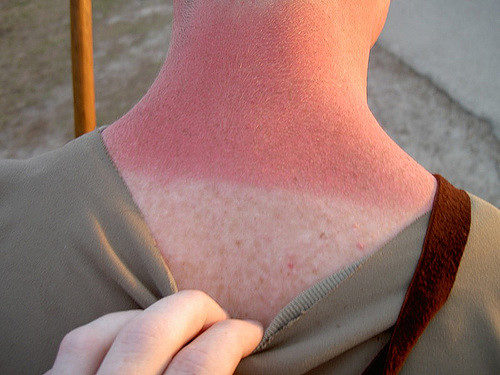Do you worry about nano-sunscreen?

Protecting your skin from the sun is the most effective way to reduce your risk of getting skin cancer. Yet for a few years now, views have been expressed about the risk of using sunscreens as well as of not using them, because of the concerns about safety of some sunscreen ingredients - in particular the new nano-sized ingredients that are incredibly small sized materials.
Nanomaterials as cosmetic ingredients might serve various functions, e.g. as UV-filters (such as Titanium Dioxide or Zinc Oxide), as pigments (e.g. Carbon Black) or as an antimicrobial agent. The use of nanomaterials in cosmetics in Europe is regulated under the Cosmetics Regulation (EC) No 1223/2009, which specifically requests the Scientific Committee on Consumer Safety (SCCS) to (1) assess and give scientific opinions on the safety of the use of nanomaterials in cosmetic products, and (2) provide guidance in cooperation with relevant bodies on data requirements and test methodologies that take into account specific characteristics of nanomaterials. The SCCS evaluates cosmetic ingredients, including nanomaterials, to see if they are safe for human use, whereas other safety issues (e.g. concerning the environment) are addressed by other regulatory bodies.
In 2013 the SCCS published an Opinion stating that the use of nano-Titanium dioxide up to a concentration of 25 % as UV-filter in dermally applied sunscreen products was safe to use on healthy, intact or sunburnt skin (SCCS/1516/13). However, when a nanomaterial surface is modified with other ingredients, it can lead to a change in the material characteristics and as a result numerous variants of a nanomaterial may be formed. In the case of nano-Titanium dioxide used in sunscreens, the SCCS concluded that such variants resulting from surface modification can also be considered safe. The SCCS recently published another Opinion (SCCS/1580/16), assessing whether nano-Titanium dioxide coated with other materials could be considered safe for the use as a UV-filter in dermally-applied cosmetic products. It concludes that the use of Titanium dioxide nanomaterials coated with specified amounts of three other coating materials could also be considered safe for use in cosmetic products intended for application on healthy, intact or sunburnt skin. This conclusion is mainly based on dermal penetration studies that showed that these nanomaterials did not permeate the skin and enter the body.
The SCCS keeps Opinions under constant review as new scientific evidence becomes available. It is currently revising, in fact, the Guidance on the Safety Assessment of Nanomaterials in cosmetics (SCCS/1484/12) to take account of the scientific progress in the field of nanotechnology and new available testing methods.
Whilst the SCCS is tackling such challenges, consumers can rest assured that any nanomaterials in cosmetics in Europe would have already gone through the most stringent safety assessment in the world. Therefore, don't worry about using sunscreens, just worry about not using them! The use of sun protection is even included in the 12 ways to reduce your risk of cancer listed in the European Code Against Cancer!
Source: https://ec.europa.eu/health/health-eu-newsletter-219-focus_en